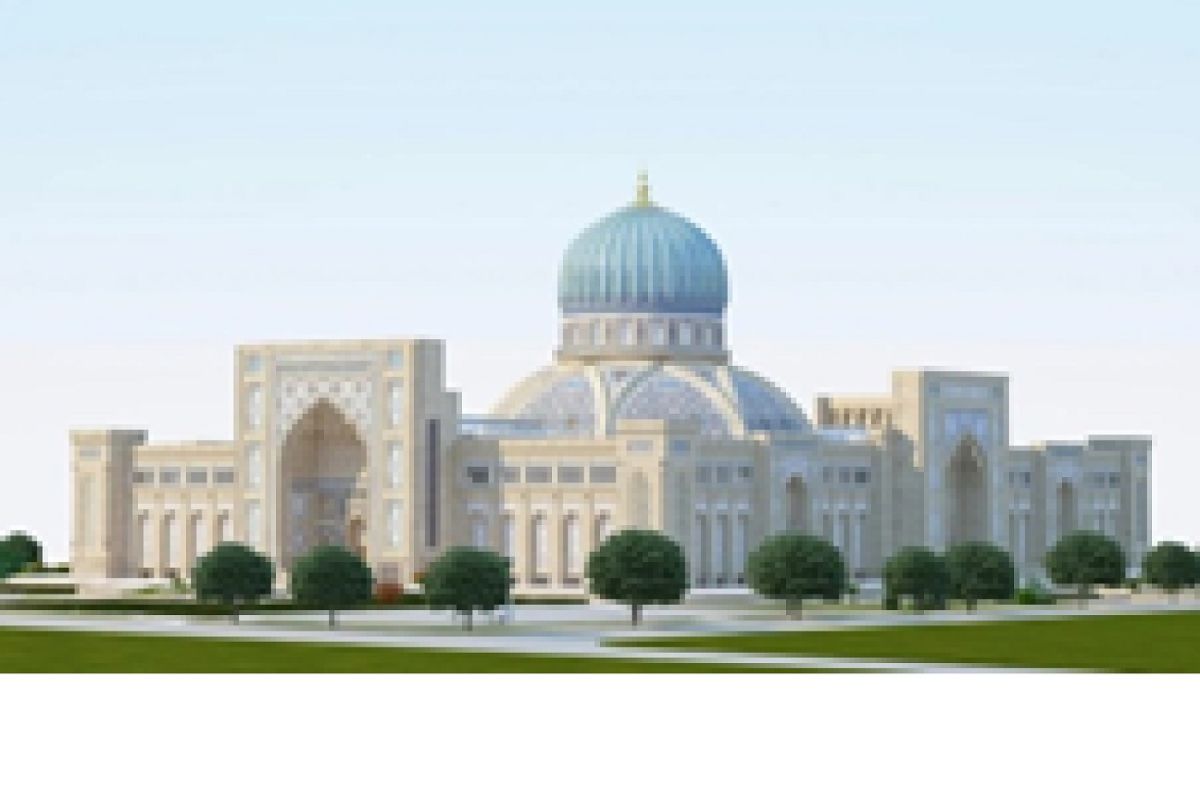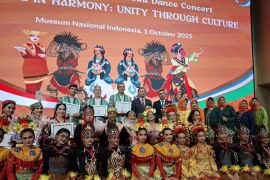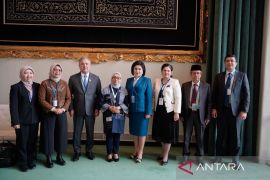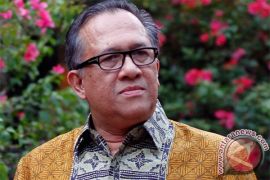Established following a decree from President Sh. Mirziyoyev on 23rd June 2017, this ambitious project took a significant step forward on 15th June 2018, during Eid al-Fitr, when the cornerstone was laid.
This initiative represents a considerable commitment to preserving and celebrating the nation's extensive Islamic heritage, with the Centre scheduled to open its doors to the public in September 2025.
Designed by the esteemed architect Abdukahhor Turdiyev, the Centre spans 7.5 hectares and seamlessly blends traditional Uzbek architecture with modern advancements.The three-storey building, which covers an impressive 42,000 square metres, features a striking 65-metre dome that enhances the Tashkent skyline.
Visitors will be welcomed through four grand entrances, each adorned with Quranic verses and Hadiths that emphasise essential values such as knowledge, tolerance, and respect for parents. The main entryway, facing Karasaroy Street, draws inspiration from the iconic portal of the Ulugh Beg Madrasah in Samarkand's renowned Registan Square.
Upon entering, guests will discover a stunning foyer measuring 36x24.5 metres and soaring to a height of 20 metres. This impressive space is accessed through three intricately crafted traditional Uzbek doors and is surrounded by fourteen half-oval panels showcasing micro-mosaic tile paintings that narrate Uzbekistan's rich history.
These artworks, meticulously curated by a team of historians, architects, and artisans, promise an engaging introduction the country's past.
The Centre is dedicated to preserving Islamic culture and educating future generations through several key objectives. It aims to explore and uphold the remarkable contributions made by scholars and thinkers throughout Islamic history, particularly in science, culture, and education. Additionally, it promotes humanism, respect for national history, and tolerance among youth, fostering peace and coexistence.
As a platform for intercultural and interfaith dialogue, the Centre collaborates with esteemed international organisations such as UNESCO and ISESCO to enhance understanding and cooperation among diverse cultures and religions.Furthermore, its educational initiatives seek to counter extremism by illuminating Islam's peaceful tenets, focusing on values of tolerance, progress, and harmony.
In alignment with the goals set by the state leadership, the Centre will continuously evolve, with its content organised into five main sections: Pre-Islamic Civilisations, The First Renaissance Period, The Second Renaissance and the Khanate Period, Uzbekistan in the 20th Century, and The New Renaissance, New Uzbekistan.
Thoughtfully designed to showcase the rich legacy of Islamic civilisations, the Centre features various dedicated spaces. At its heart lies the Quranic hall, which will display the revered 7th-century Uthman Quran, a significant artefact currently housed within the Hazrat Imam Complex.
The second floor will house the Museum of the History of Islamic Civilisation, spanning 8,350 square metres and presenting rare artefacts, manuscripts, and educational resources related to Islamic science and culture.
These exhibits will utilise cutting-edge technology to create an immersive experience for visitors. The same floor will also include a 550-seat conference hall for educational and cultural events.
On the third floor, a vast library will contain over 200,000 printed books, ancient manuscripts, and more than one million digitised sources, serving as a hub for scholarly research and international academic collaboration.
Additionally, the Centre will provide spaces for cultural and educational activities, including a restoration laboratory, conference rooms, and offices for international organisations like UNESCO, ISESCO, and branches of the Oxford Centre for Islamic Studies, along with over 100 scientific institutions, museums, and libraries from Turkey, Russia, and Central Asia.
As a global hub for Islamic cultural heritage, the Centre will host exhibitions featuring collections from renowned international institutions, including the Islamic Arts Museum Malaysia, the Süleymaniye Library in Turkey, the Azret-Sultan Complex in Kazakhstan, and the Bologna University Library in Italy.
This initiative aims to highlight nearly 50 world-class collections centred on Uzbekistan's cultural and historical legacy, marking a pioneering global museology project focused on the heritage of a single nation.
The "Roadmap" for the Centre outlines research on 823 scientific projects to be conducted in three phases, involving over 100 organisations, including local governments.
More than 4,400 local and international scholars, specialists, and experts will actively contribute to these initiatives. Central to the Centre's mission is fostering collaboration between Eastern and Western cultures, creating a space where ideas can converge.
By promoting the core Islamic values of knowledge, peace, and tolerance, the Centre aims to showcase Islam as not merely a faith but also as a catalyst for scientific discovery, cultural exchange, and mutual respect.
As this significant project unfolds, the Centre of Islamic Civilisation in Uzbekistan will play a crucial role in addressing modern extremism and promoting peace through education, becoming a vital platform for global dialogue and understanding.
Related news: Indonesia, Uzbekistan strengthen bilateral cooperation
Related news: Indonesia works with Uzbekistan to accelerate gender equality
Copyright © ANTARA 2025












